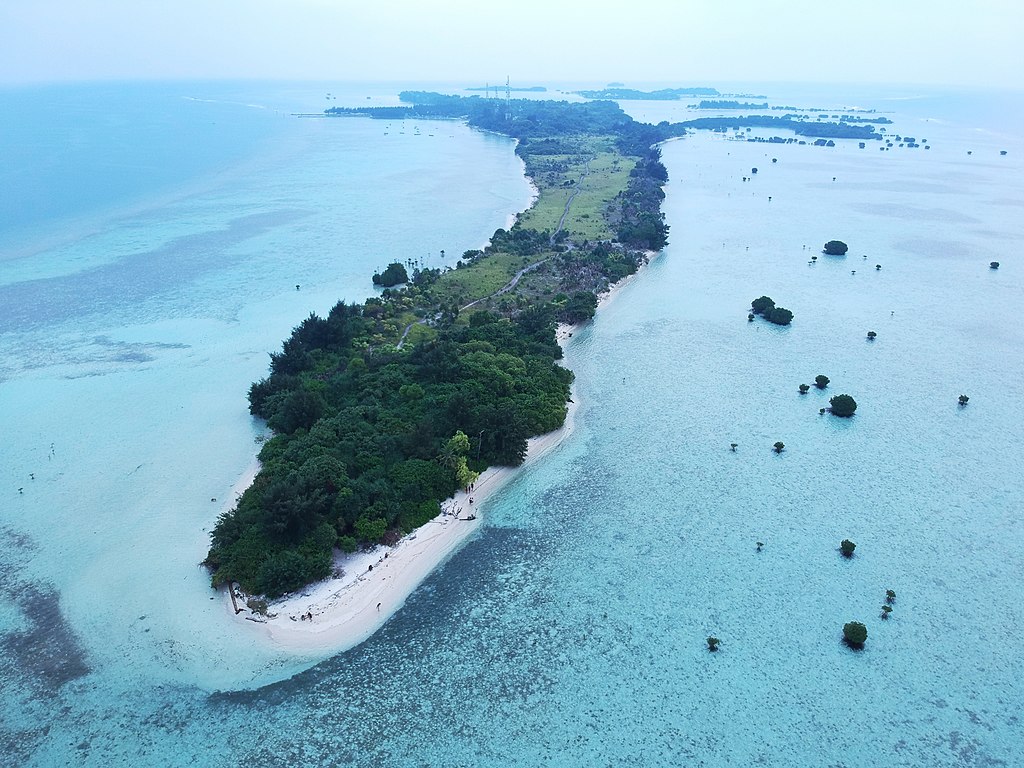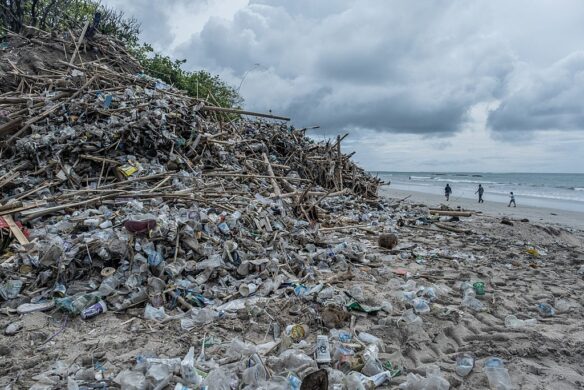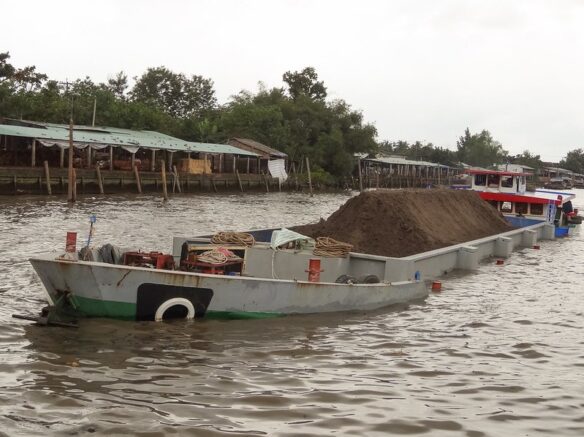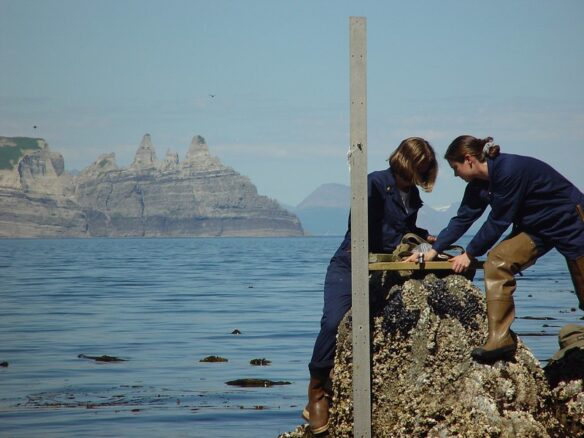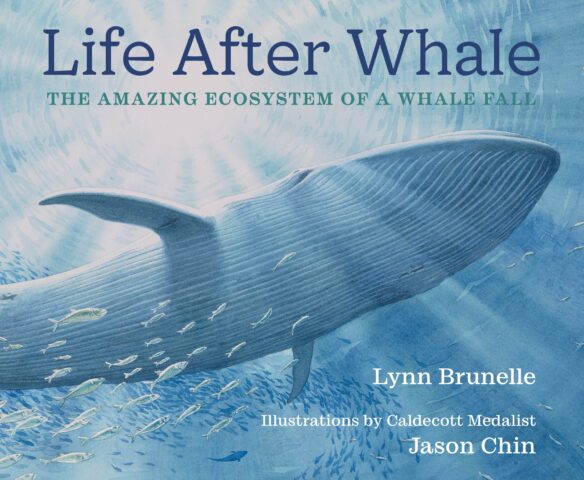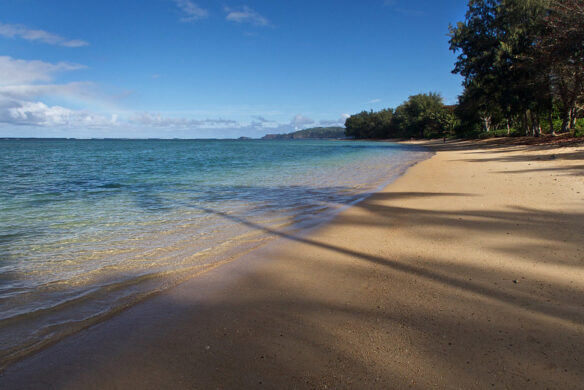Excerpt:
Activists and coastal dwellers warn that restarting exports threatens fishermen’s livelihoods and could hasten loss of Indonesia’s many small islands…Sea-sand mining activities will also contribute to rising sea levels and worsen the climate crisis in Indonesia…
The last time dredging vessels came to Rupat Island, the Indonesian island’s coast was pillaged for its sea sand, says fisherman Eriyanto, who saw his income shrivel as the seabed – and the ecosystem it shelters – was scooped up for sale.
Now, the 36-year-old from Suka Damai village fears worse is yet to come, after President Joko Widodo last month lifted a 20-year-old ban on sea-sand exports.
“We beg the president to revoke the sea-sand export permit. We are just traditional fishermen looking for a bite to eat for our families. The government must think about us people who live on small islands. Our small islands should be protected, not damaged,” Eriyanto said.
Singapore, 250km across the sea from Rupat Island, is among the world’s largest importers of the sea sand that’s essential to its massive reclamation ambitions. Even as Eriyanto fears parts of his small island will be dissolved by Indonesia’s reversal of the export ban, the city state could be poised to benefit.
Singapore tipped to gain
According to a United Nations report in 2019, Singapore shipped in 517 million tonnes of sand from its neighbours in the preceding two decades.
But environmental concerns and a need to protect its borders led to a ban in 2003, and Indonesia reaffirmed the ban in 2007 in a move against illegal shipments.
Restarting sea-sand exports to Singapore might once again bring in revenue for Indonesia, while also aiding Singapore’s land reclamation efforts, including the third phase of its Tuas Port mega project.
Singapore imported US$72.4 million worth of sand in 2021, and its fastest-growing import markets between 2020 and 2021 were the Philippines and Malaysia, according to figures from the Observatory of Economic Complexity.
That might be set to change. Riau Islands’ Sea Sand Miners Association Chairman Heri Tosa said Singapore was the Indonesia-based association’s primary market for sea-sand exports, and that Hong Kong was also looking for sand for land reclamation projects, according to The Jakarta Post.
But calls are mounting from environmentalists and coastal dwellers in Indonesia for the government to reconsider the regulation, warning that it threatens fishermen’s livelihoods and could hasten the loss of the country’s many small islands.
Data from Indonesia’s Ministry of Maritime Affairs and Fisheries stated that up until 2009, as many as 26 small islands in the Riau region had disappeared due to coastal abrasion caused by large-scale sea-sand mining.
“Selling sea sand to countries abroad allowed them to reclaim their lands and expand, but at the cost of losing our own islands,” said Parid Ridwanuddin, a campaigner at the Indonesian Forum for the Environment (Walhi).
“Our government is not taking into account the impacts of the climate crisis when making these policies…”

